‘Feeling Like a Full-Fledged Part of the University Community’
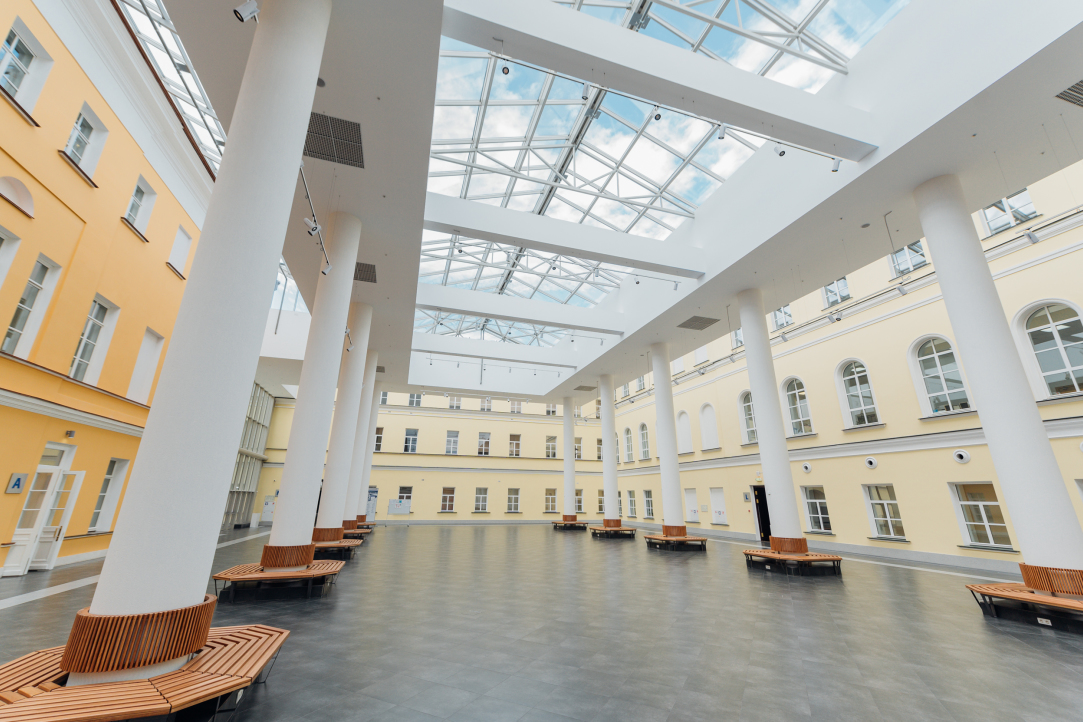
HSE University is focused on achieving leadership not only at the national level, but also internationally, so internationalisation has been and remains a priority area of the University's development strategy. One of the components of this process—internationalisation of the internal environment of the university—deserves special attention, since internationalisation is an important condition for the successful integration of the University in the international academic environment. In an interview with the HSE bulletin Okna Rosta, Yulia Grinkevich, Director for Internationalisation, talked about various approaches to internationalising the campus environment, the progress HSE has made in this regard to date, and the tasks that remain in the 2030 HSE University Development Programme.
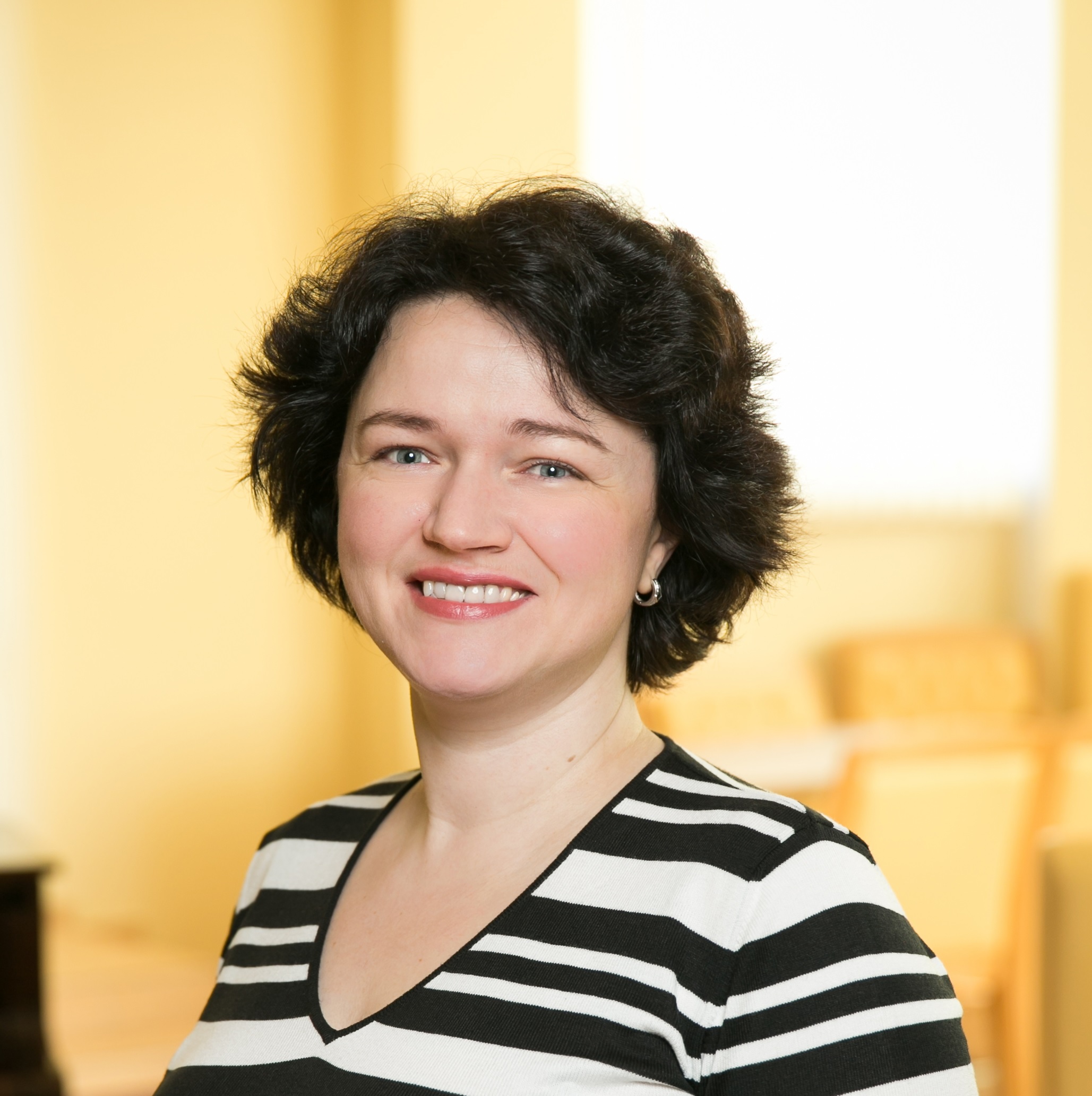
Yulia Grinkevich
Director for Internationalisation, HSE University
Internationalisation at Home: What Is It and Why Is It Necessary?
Although internationalisation of higher education is a fairly new phenomenon, it has had a significant impact on today's leading universities worldwide. The concept of internationalisation of education is constantly being revised, and Jane Knight's definition is currently widely accepted: ‘Internationalisation is the process of deliberately integrating an international, intercultural or global dimension into the delivery of higher education, in order to enhance the quality of education and research for all students and staff, and to make a meaningful contribution to society’.
This approach makes it possible to include all university staff and students in internationalisation processes, and not just those who can participate in mobility programmes.
The concept of internationalisation has two aspects — ‘internal’ (or ‘internationalisation at home’) and ‘external’. There is no universal model, and universities are free to choose different approaches to the process depending on their geographical location and socio-economic circumstances. For most Russian universities, however, external internationalisation—attracting foreign students and developing academic mobility programmes and joint international network programmes—remains the most common approach.
Internal internationalisation implies the introduction of formal and informal international and intercultural elements of the educational programme within the local educational environment for all students.
In Russia, this approach is not yet widespread and is mainly implemented in the context of the formal elements of educational programmes. Also, there is still very little attention paid to the informal environment — what happens outside the educational process and classroom environment, and relates to issues of social and everyday integration.
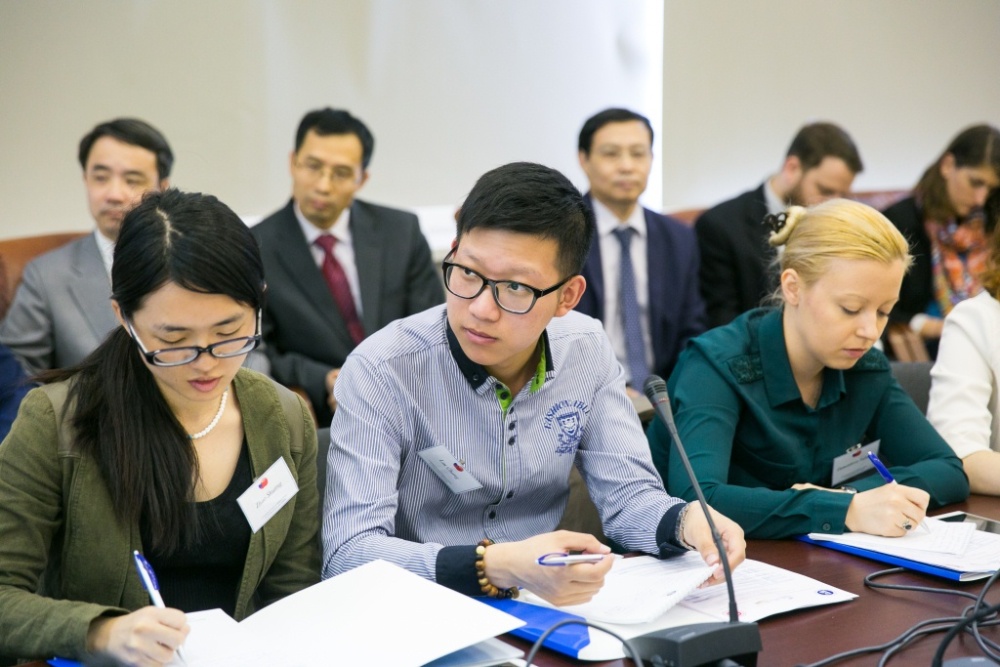
Internationalisation of HSE University: Key Challenges
In the process of implementing a strategy to attract the best students, lecturers, and staff from the international academic market, the question of whether the university environment was ready for the successful adaptation and integration of international colleagues came to the fore. The need to provide mechanisms for attracting and retaining engaged students and academics served as a major trigger for the process of internationalising the internal environment.
It began in 2007, when HSE launched a programme of international recruitment. Then the University began to attract young PhD holders from the best foreign universities for tenure-track and postdoc positions, as well as leading scholars on a part-time basis.
This was followed by a decision to start actively recruiting international students from abroad. All of this highlighted an acute problem: the university environment was not sufficiently prepared to support new employees and students at all levels and to successfully integrate them into the university community.
To solve this problem, a new structural unit, the Department of Internationalisation, was created in 2013. Its main goal was to develop and provide an effective and standardised integration mechanism for international staff and students. Though it may sound simple, it was a non-trivial task, since it touched on all aspects of life for employees and students within the University—from the decision to join the community (enrolling or accepting a job offer) to the moment of leaving (completing one’s course of study or employment contract). It was necessary to update the interfaces of all internal University services that support end-to-end processes, and analyse and revise existing policies and procedures, taking into account best practices from other universities around the world.

Approaches to a Solution
The work to develop an effective mechanism for integrating international colleagues included several stages. First, we researched the websites of leading foreign universities for the adaptation and integration of international students and staff. The Massachusetts Institute of Technology (MIT) website proved to be the most elaborate in terms of describing all internal procedures, tracks and opportunities for international employees, and it could serve as a good reference point for the quality and quantity of information provided.
Of course, in English-speaking countries there is no need to develop and maintain a bilingual policy. However, an analysis of the experience of universities in Scandinavian countries has shown quite successful examples of building an English-speaking university environment where English is not the country’s official language.
As for services for international students, the experience of British universities, which entered the international higher education market much earlier, was particularly useful here. In addition, the oldest Association of University Administrators (AUA), the main internal body that supports the processes and assist foreign students, is located in the British Isles. The association has developed professional standards for all categories of administrators, including those who work with international students.
The next step was an audit of HSE University services in terms of their accessibility to foreign colleagues and students in comparison with similar services for the Russian audience and an analysis of incoming requests from these target groups. The results of this work allowed us to identify the main barriers to the effective and successful integration of foreigners into the university environment. These are, of course, the language barrier and different cultures, as well as differences in the academic environment and national legislation.
Understanding these problems allowed us to specify the tasks for the Department of Internationalisation and choose strategies, approaches and tools to solve existing problems.
The main goal of developing an English-language environment is to provide accessible and understandable information about University services to all staff and students. With free access to information, all members of the University community can use the existing resources to resolved issues and meet their needs.
Therefore, work on the development of the English-language environment at HSE University includes several important areas at once: involvement of staff and students into the university's information flows, development of an English-language interface for university-wide services and the translation of key documents into English.
Both students and employees of HSE University, as with any other university, go through certain stages as they become connected with the University. Everything begins with a statement of interest, which can later turn into the beginning of a relationship with the University in the form of employment or a study programme.
This is followed by adapting to the new environment and choosing a development trajectory in it. The final point in this relationship is graduation or reaching the end of one’s contract with the University. Therefore, the structure of the Department of Internationalisation includes units that provide support at all stages of this cycle.
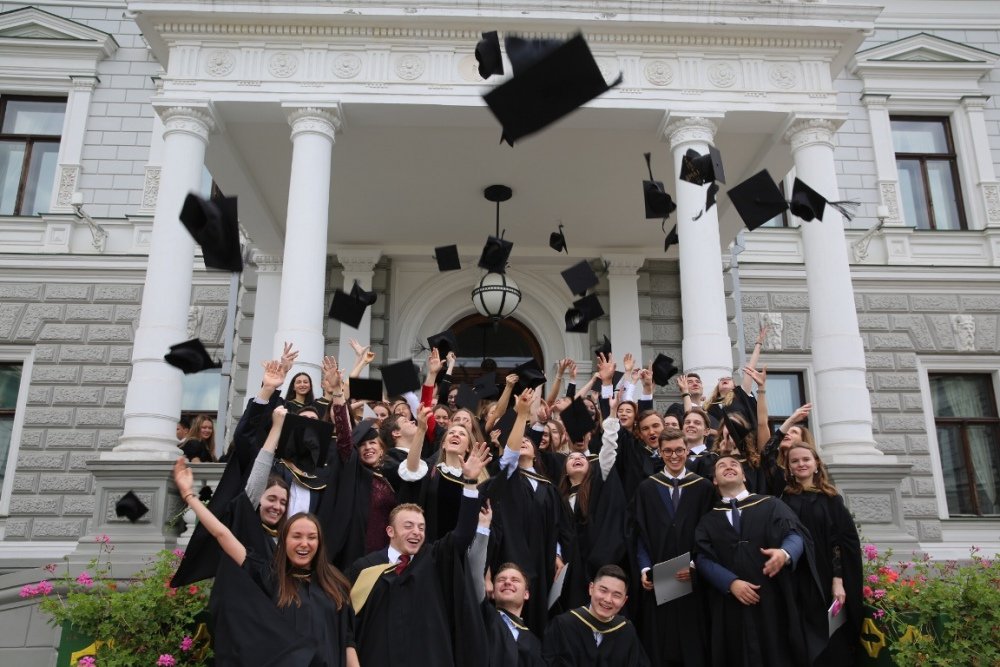
New Information Hubs for International Students and Employees
The information about HSE University that is available to an applicant, exchange student, or potential colleague at the initial stage of their decision-making largely determines their decision. Academic reputation plays a major role, of course, but all other things being equal, an understanding of the practical conditions of study or work, as well as the mechanisms for their implementation, helps to form an idea of what awaits the student or new staff member at the university.
The extent to which these perceptions subsequently match the actual personal experience directly determines whether there will be a gap between expectations and reality. And this, in turn, determines how quickly, efficiently, and painlessly a new member of HSE University’s community can feel like a full-fledged part of it.
Those who already study or work at HSE University should have an organic understanding of what is going on, a sense that all the necessary information is available, that they are informed, and that even if there is no immediate answer to a vital question, it is still clear where to turn to solve it.
Therefore, it was necessary for HSE University to provide students and employees with easy and free access to information about what their life at HSE University would be like, and to guarantee that they would receive prompt feedback.
The solution was the creation of online information hubs for international staff and students: istudents.hse.ru/en and ifaculty.hse.ru. These are English-language electronic resources that are available online 24/7 from anywhere in the world and are organised according to the ‘one-stop-shop’ principle with further intuitive navigation. Using these, you can get all the information you need at any stage of your relationship with the University on all issues that arise.
The first versions of the information hubs were only a patchwork and contained many procedure descriptions that were prepared not by those who facilitated those procedures but by the Department of Internationalisation staff. They described only the key parts, the fundamental minimum, without knowledge of which it would be impossible to manage expectations.
The needs of foreign staff and students, identified by survey results, in-depth interviews, and case analyses conducted in the Department of Internationalisation, served as the basis for the site. The content consisted of procedure descriptions and information, some of which had to be translated, some of which had to be described anew, and some of which had to be accompanied by pictures.
A preliminary study showed that the structure of these electronic resources should allow colleagues to get acquainted with the main internal documents, living, studying and working conditions, as well as to talk in simple human language about the conditions of the contract and studying, to explain visa and migration issues, to give recommendations about relocation.
An important part is the block on work, study, and, of course, life beyond HSE. In other words, from the initial stage, these resources were not completely static: new descriptions and procedures, feedback from users, and an expansion of the scope of the events described were the source of revision and changes.
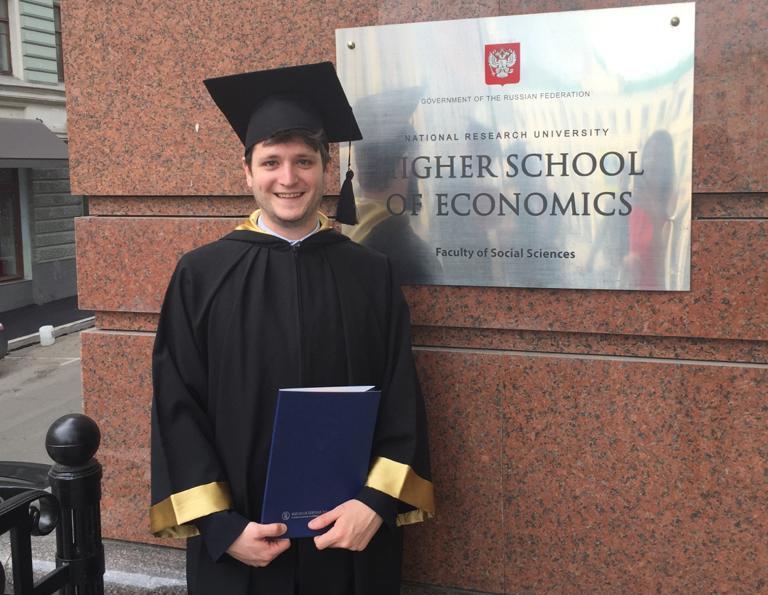
From English-Language Services to the Internationalisation of the Internal Environment
In order to ensure timely access to current internal documents regulating the rights and obligations of students and employees, the Expert Translation Centre was established in 2014, as part of the Department of Internationalisation. It not only translates University policies and procedures, but also conducts expert verification of these translations, which helps to minimise the risk of bureaucratic costs when admitting international students and employees.
Most importantly, these documents are available to overseas colleagues and students at any time. They convey an idea of what the rules are for life at the University, and that these rules are the same for all members of the University community, regardless of their proficiency in Russian. By 2020 the Expert Translation Centre had reached a new level of capacity: every month its employees translate more than 200 documents, edit about 450 documents, and certify over 110 pages of translation.
Free access to information provides something very important—opportunities, and the decision of whether or not to take advantage of an opportunity is one’s personal choice. The active involvement of foreign colleagues in the development of hubs and the creation of additional channels of information also contributes to a sense of community and belonging to the HSE University community.
One of these is the English-language supplement to the university-wide newsletter The HSE Look, which is published every other month. Since the project began, 48 issues have already been published, covering major events at the University through interviews with top University officials and profiles of new international colleagues and their research interests. It is especially gratifying that during its existence, the supplement has developed its own circle of subscribers and readership that extends beyond the foreign employees of HSE University, as well as regular columnists from among our international colleagues.
The next step was to make sure that all university-wide initiatives include English-language platforms—spaces and formats that allow the integration of participants who are speakers of different languages and cultures, because education and work at University are not only about mastering disciplines and publishing scientific results, but also about students and staff communicating with each other in University clubs, during scientific or cultural events.
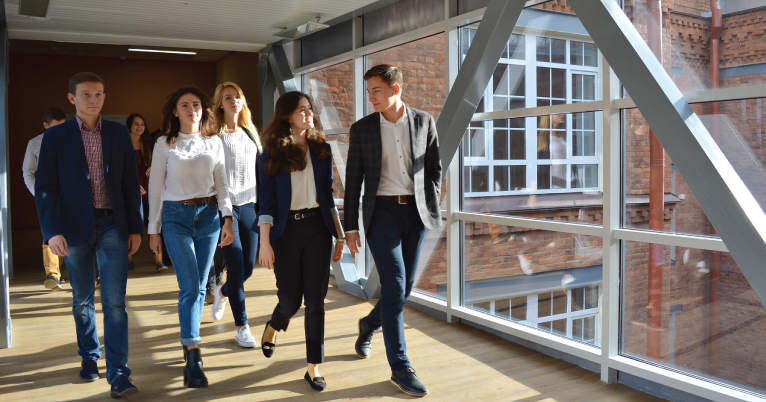
From a Centralised Model to Networking
In the initial stages, all work to support international specialists and students was concentrated in the hands of one structural unit, the Department of Internationalisation. The Department plays the role of a communication link, ensuring interaction between international colleagues, students, and the administrative divisions of the University, which are responsible for providing individual services.
The Department also develops and describes the standards for providing these services, including the availability of an English-language page on the University website, its content, and regular updates. This approach allows the Department to keep pace with life at HSE and clearly identify the responsible ‘process owners’, but it is not free of the costs inherent in any centralised approach. If in the initial stage you can't do without a growth point, then for further development you will need to change your approach to a more decentralised one.
With the growing number of international students and specialists, it is simply impossible to maintain a ‘bottleneck’ that can continue to handle all incoming questions. In addition, there is the risk of becoming a ‘redundant link’ between the request and the service where this request is implemented, as well as becoming a cause of segregation of foreign colleagues within the University, which would severely limit the potential of HSE University.
The transition from a centralised to a networked (distributed) support model does not negate the existence of the central service, but its role is shifted towards the creation of institutional conditions for solving the particular task—the successful adaptation and further integration of international students and specialists into the educational, scholarly, and socio-cultural environment of HSE University.
Direct support of international specialists of different tracks and students of the main academic programmes will be provided locally within the framework of standard situations and created tools.
Responsibility for creating and developing support tools (including memos, instructions, modules in corporate information and accounting systems, etc.) and developing various policies and rules remain at the central level for now.
The Department of Internationalisation also coordinates with other university departments and field coordinators, resolves conflict issues, and organises university-wide adaptation and integration activities. Everything related to electronic information resources—their creation and development, analysis and audit for accessibility—remains an important area of our work.
This kind of organisation cannot be achieved by a single unit, however central and international it is. This dictates the need for university management to understand the importance of what is happening, as well as parallel internal structural changes, leading to flexible, decentralised management of the main work of the University—research and education.
The distributed model for supporting international students in incoming mobility was implemented through the transition from the departmental principle of educational process management to educational programme management. Requirements for staff in the academic offices of the main educational programmes began to include knowledge of English and knowledge of the specifics of working with international students and lecturers. At the same time, the number of programmes taught entirely in English has increased significantly.
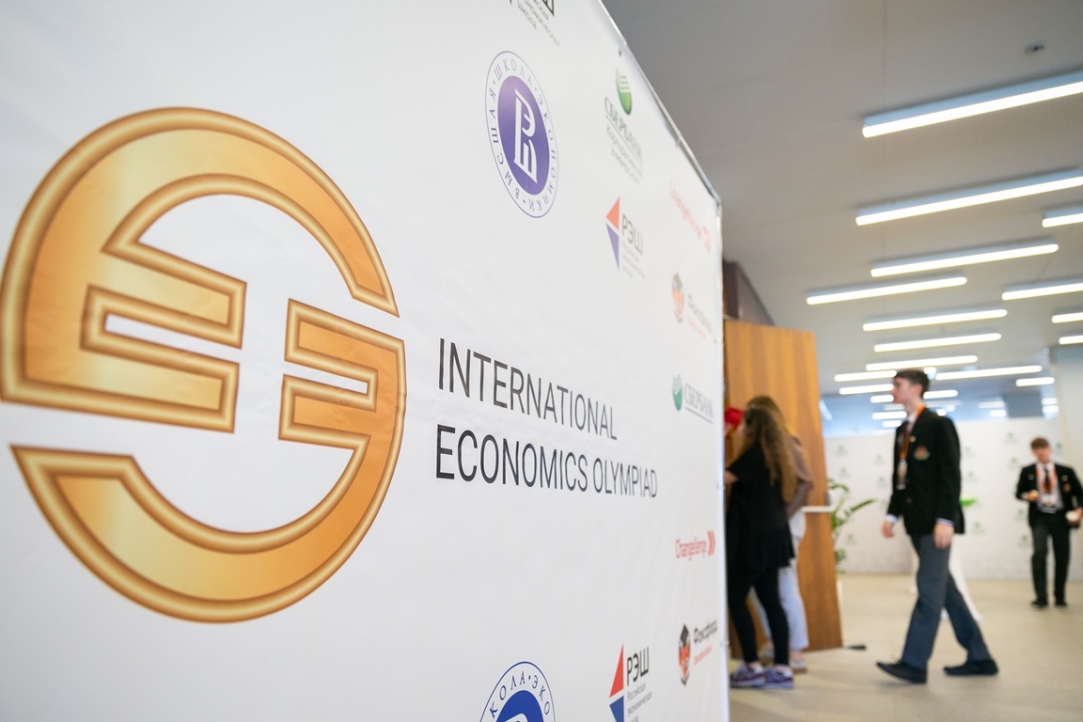
Outcomes
Thanks to the support and understanding from the management of the Department of Degree Programmes, the efforts of colleagues from the International Admissions Office and the active development of the infohub istudents.hse.ru/en before the 2020 pandemic, it was possible to increase the share of foreign students in HSE main academic programmes sevenfold.
Compared to the 2013-2014 year, we have four times as many students coming to study at HSE on mobility programmes. At the same time, about 20% of students on mobility stay for the second semester, citing the confidence of the international partner universities in the quality of education at HSE University. This strengthening of academic reputation, in turn, has led to a threefold increase in outbound mobility opportunities for HSE University students.
The network format of work organisation facilitated not only an increase in the total number of highly qualified scientific and pedagogical specialists at the University (in 2020 there were more than 200 foreign colleagues in different tracks of international recruitment), but also provided support for different formats of interaction with colleagues: short and long-term employment contracts, periods of part-time employment, inviting leading scholars and associates on short visits, and remote contracts with colleagues who cannot come to Russia. The latter form of work has become especially relevant during the restrictions associated with the coronavirus pandemic. In the 2020/21 academic year, about 100 foreign colleagues will participate in the programme to attract international specialists, and they will all work remotely. Read more about the programme on the ‘Visiting Scholars’ webpage.
This work format set the need for a new dimension of electronic system interfaces. In addition to the true end users — international students and staff — space was needed for ‘internal customers’ — colleagues who provide support in the field. Therefore, we developed and launched parts of the infohubs not accessible by external users, designed to provide easy access to all process descriptions, key documents, a quick way of feedback and the formation of a knowledge base.

Plans for the Future
In the new 2030 HSE Development Programme, the creation of an international environment is included as a separate item in the ‘World Class University Environment’ section. The main goal is to provide equal opportunities for full participation for international students and staff. This direction involves the participation of foreign students and specialists in the self-governing bodies of HSE University, which poses the difficult task of ensuring high language competency requirements and intercultural communication skills of all staff and students of the University.
Equal rights and opportunities for all members of the University community, including foreigners, require the creation of a sustainable model to foster internationalisation. These include the minimisation of risks and restrictions associated with visa and migration support, the possibility of employment and building long-term employment and educational trajectories for international students and staff at HSE University.
Internationalisation is not a goal, but one of the means of achieving the goal of international competitiveness of HSE University.
The University's international services can act as facilitators and moderators of internationalisation processes, but without the involvement of all of the University's staff, full internationalisation of the University's internal environment is impossible.
Yulia Grinkevich
Director for Internationalisation
See also:
HSE Launches English-Language Strategic Development Website
The new website makes information on the university’s strategic development initiatives and opportunities available to international colleagues and partners. The Strategic Development Programme Office has launched anEnglish-language website to promote the implementation of HSE University’s integrated development programme. The website is an ‘entry point’ for international partners and students, informing them about the university’s strategic priorities, goals, and plans.
HSE University Leads in Four Subject Rankings of ‘Three University Missions’ Rankings
In 2023, HSE University took first place in the ‘Three University Missions’ subject rankings in economics, sociology, management and psychology. The university also entered the top three in terms of the number of subjects covered by the rankings.
'We’re Moving On to the Next Stage of Digital Transformation'
Dmitry Bondar has served as Senior Director for Digital Transformation at HSE University since January 2021. Since then, the university has introduced and developed numerous new, state-of-the-art information systems. Dmitry Bondar is responsible for ensuring high rates of digital transformation and the good performance of HSE's IT Office. In his interview, he speaks about the integration of new information systems, project management at the IT Office, import substitution in IT, engaging with students, and plans for the current year.
‘The Project Competition Will Kickstart New Research Collaborations’
HSE University has announced the launch of a project competition in basic science research for intercampus departments of the university. The competition is aimed at supporting research as part of the HSE University Development Programme for the Period until 2030.
‘Our Development Programme Is a Meaningful Vision of the Future’
The HSE University bulletin (Okna Rosta) spoke to Rector Anisimov about the details and significance of the newly approved Development Programme, changes to academic life due to the pandemic, the role of digitalisation, and the university’s ‘soft expansion’
Russian Government Approves Programme of HSE Development until 2030
The Programme of HSE Development until 2030 has been approved by Prime Minister Mikhail Mishustin’s order. The document outlines the goals, tasks and responsibilities of the government and HSE University for its strategic development. According to the programme, the university’s strategic goal is its continuing development as a leading research, educational, analytical, consulting, and project university, which can compete head-to-head with the world’s best universities.
HSE Supervisory Council Approves the Implementation of the HSE Development Programme up to 2020
The HSE University Supervisory Council chaired by Sergey Kiriyenko, First Deputy Chief of Staff of the Presidential Administration of the Russian Federation, gathered for its first on-site meeting after the start of the pandemic.
HSE University to Establish Graduate School of Business
HSE Graduate School of Business will open on September 1 of this year. The Academic Council decided on the School’s creation within the framework of HSE University’s 2030 Development Programme, which aims at enhancing the University’s global competitiveness.
HSE Academic Council Approves University Development Programme for 2030
On January 24, the HSE Academic Council approved the new University Development Programme for 2030, which the Council had been drafting for the past year. Members of the Academic Council also discussed the status of the university’s digital transformation.
'We Want HSE University to Develop Centres of Excellence'
The HSE Look is glad to present the second part of the interview with Rector Yaroslav Kuzminov, originally taken by our flagship bulletin Okna Rosta. This part focuses on new educational tools as well as old traditions, on cooperation with regional universities and the transformations to be achieved in the upcoming decade.


